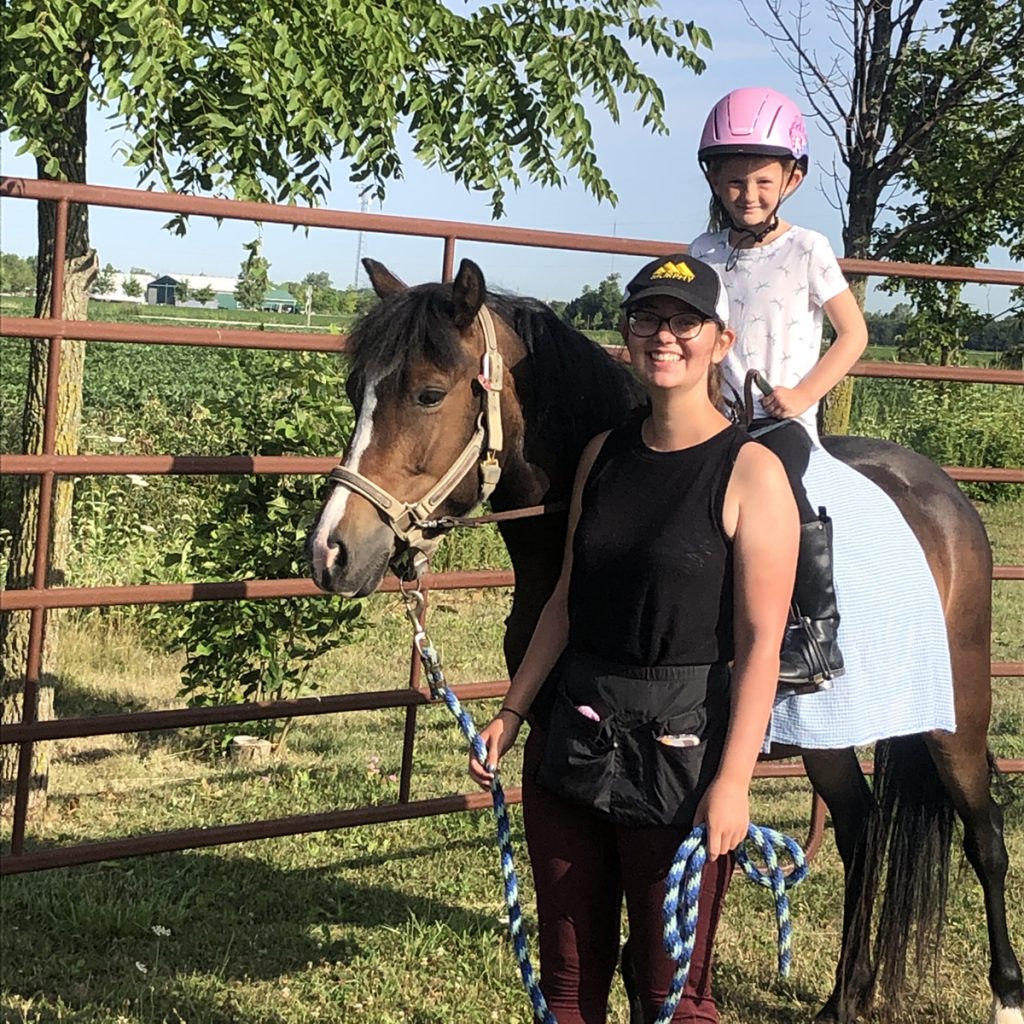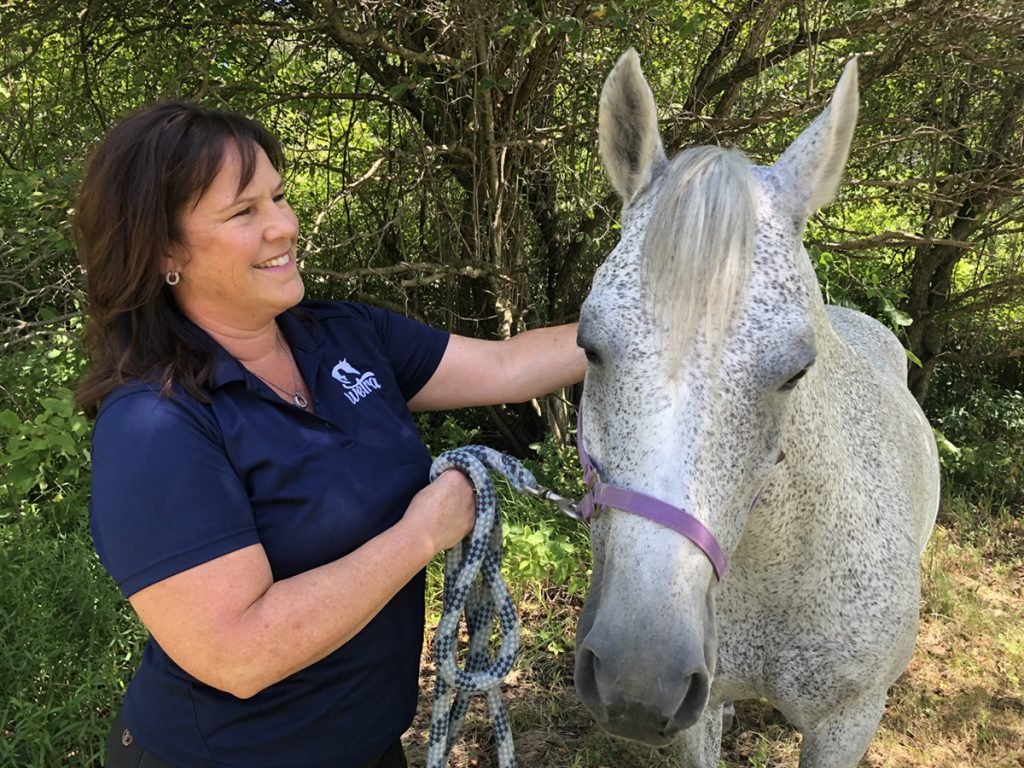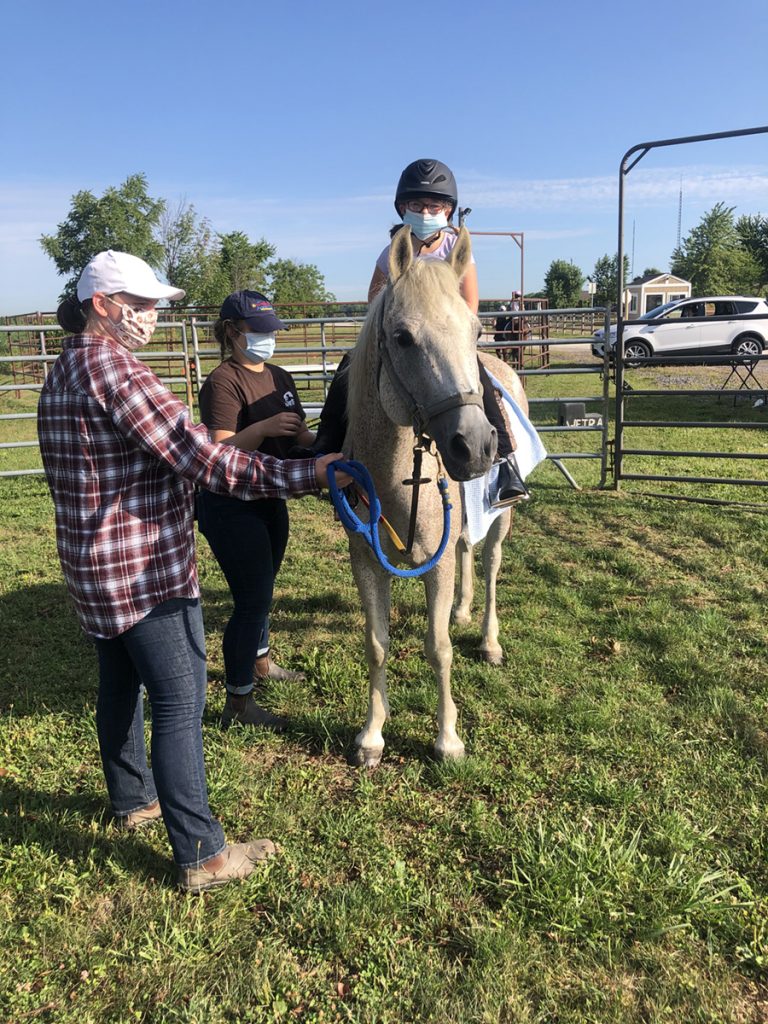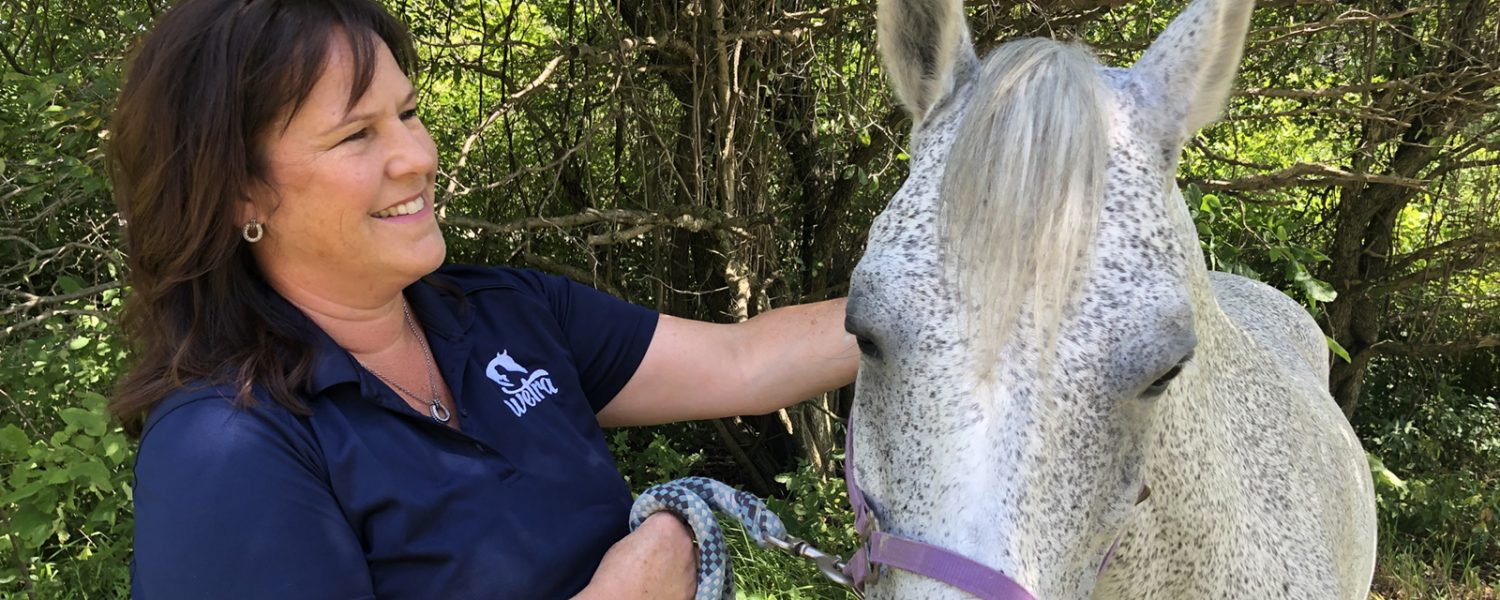The Windsor-Essex Riding Association
Story by Michael Seguin
Photography Courtesy WETRA
Winston Churchill once said that no hour of life is wasted that is spent in the saddle. And few have spent more hours in the saddle than Becky Mills, the Executive Director of the Windsor-Essex Riding Association (WETRA).
“It’s such an empowering feeling, being on top of a horse,” Becky explains. “You have this thousand-pound animal beneath you, that’s willing to do as you ask. The fact that he’s so large but so willing to work with you is just amazing. Once you sit astride the horse and feel the movement, you’re able to put them through their paces. It’s very empowering. That’s the biggest thrill. The sheer empowerment.”
Becky first discovered the joys of hours in the saddle as a 12-year-old.
“As a child, most sports didn’t interest me a whole lot,” Becky explains. “I had tried figure skating and ringette, but I didn’t click with them. So, at one point, my Mom took me out to a farm to try riding a horse.”
When Becky remembers her first experience with a horse, she remembers the sheer size of the animal.
“The first time I walked into a barn, I pressed my body up against the stall wall,” Becky recalls. “I was so afraid of the animal. But my Mom said, ‘If you can’t get near the horse there’s no way you’re going to get on it.’ So, I worked through it. And once I realized how accepting they are, all my fear went away. From then on, I loved being around them.”

From there, Becky was obsessed. As a teenager, she competed at the Ontario Quarter Horse Association.
“On the outskirts of Windsor, Dr. Kleider had a farm called the Windsor Riding Academy,” Becky states. “I started riding there as a youngster. Ironically, that farm ended up being the future home of WETRA. I started training twice a week to prepare for competitions. We were starting to show hunter-jumper shows around Ontario with a group called the Trillium Circuit.”
Becky met her husband, Mike, at a horse show.
“It’s been a love in our family since the beginning,” Becky states. “We even built our own farm. We’ve been there almost 30 years now.”
After building her own family, Becky found herself looking for ways to give back to the community. So, she began volunteering at WETRA to share her love of horses.
“I had known the Executive Director of WETRA for years,” Becky explains. “I knew that she ran a program to help people with disabilities using horses. So, I figured, I know horses. I’ve raised a couple of children. I can certainly help children with autism on horses. I assumed it would just be me helping with pony rides. But, I very quickly learned that WETRA offers so much more.”
What would eventually become known as WETRA was founded in the 1960s by Dr. Elmer Butt, a distinguished radiologist and equestrian who observed horses being used for therapy with physically challenged children in England.

Now, after over 50 years, WETRA receives nearly 200 persons each week. About 80% of those enrolled in the program are children with developmental, emotional or physical disabilities. The other 20% are adults with similar challenges, such as cerebral palsy, spina bifida and head injuries.
“We use horses to contribute positively to people’s lives,” Becky states. “Whether children or adults, we want to contribute positively to their physical and cognitive development and emotional and social well-being using the horses. So, we offer programs to everyone who qualifies. The horse’s three-dimensional swinging gait encourages the rider to sit upright and engage their core muscles.”
Using WETRA’s adaptive equipment, almost anyone can ride a horse.
“Even people in wheelchairs can ride horses,” Becky states. “The horse becomes their legs. And while they’re in the saddle, they’re receiving physical therapy. They’re getting muscle-strengthening therapy through riding the horse.”
Hours passed in the saddle, Becky explains, can be great for emotional resiliency.
“Horses are great at teaching you how to control your own emotions,” Becky explains. “They build your self-esteem. They respond to ques that you give them without any judgment. If you make a mistake, they’re very forgiving. They’re so accepting. And by coming to our farm to ride, you develop friendships and learn better team building skills. Sometimes people bring their mental health counsellor with them to spend some time together in the stable.”
After volunteering with the organization for a few months, Becky was made WETRA’s Head Instructor in 2004. A decade later, she became the new Executive Director after her predecessor retired.
Over the last 16 years, Becky has coached thousands of riders. However, when asked to describe her most profound experience working at the organization, she shares the story of Jeanie, a blind woman who became a champion.
“We had a woman in her 70s who was blind due to complications from diabetes,” Becky recalls. “She had been part of the horse-show world through her daughter, but had never ridden a horse herself. So, she started riding with us. We had a retired RCMP horse that had been donated to our program that was so well-trained. She was able to ride the horse, even though she was blind.”
Jeanie went on to compete through various video competitions across Canada, winning several national awards.
Becky also tells the story of Matteo, a child with autism.

“One of the best experiences I’ve ever had was helping a child with autism get over his fear,” Becky explains. “He was terrified to get on the horses, like me when I first started. He kept turning towards the family car, saying, ‘No! No! No!’ We kept encouraging him to come back. And once he finally put his leg over the horse, we moved the horse away from the mounting area where he climbed on. His face just lit up. He had a big smile on his face. We stopped the horse to see where he was at, and he just said, ‘Ride on.’ His Mom was crying. He kept coming back for years.”
After decades of providing services, the pandemic forced WETRA to pause some of their programs.
However, while the future remains uncertain, Becky is confident that WETRA will be able to provide Windsor with many more hours in the saddle.
“We’re propelling forward,” Becky states. “We’re not scared of the future. We can do it. We started small before. In the ‘70s, we only had six riders. We built up to over 200 riders a week. And, while we may have to start again because the COVID safety guidelines, we will persevere and move forward. We’ll bring back our volunteers and programs as soon as we can.”
More information is available at wetra.ca.




Add comment